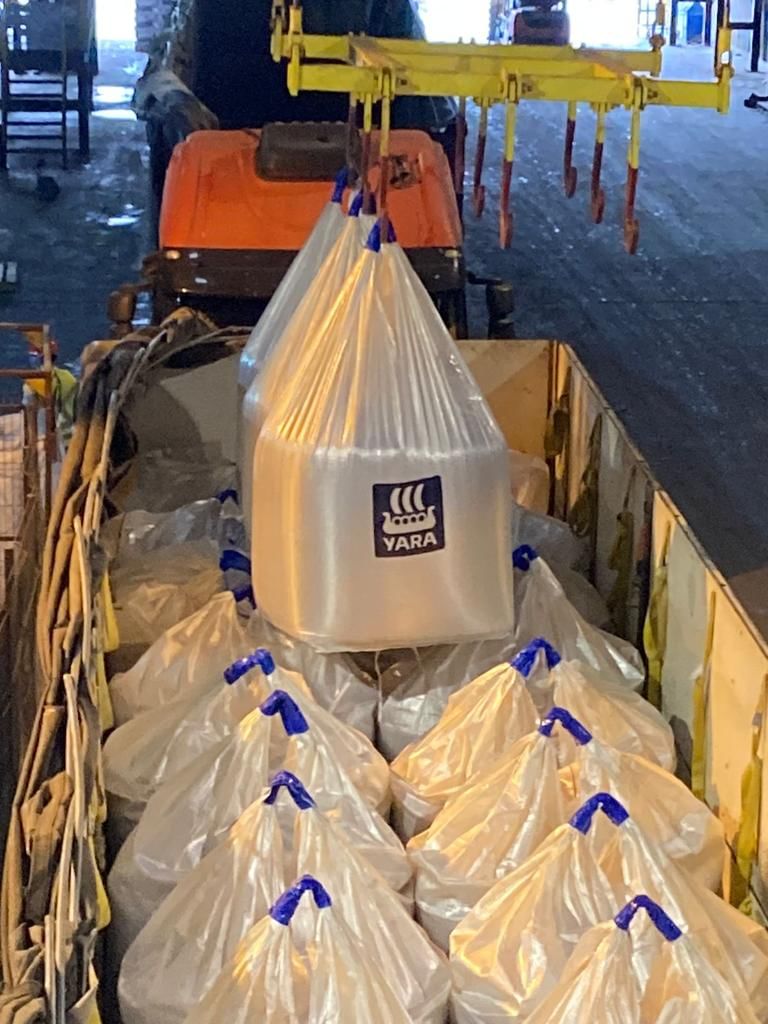Packem Umasree launches sustainable FIBC at Interpack
During Interpack, Packem Umasree launched sustainable FIBC jumbo bags made from PET or PCR. Punit Gopalka, CEO and director, Packem Umasree, talks about how the product is sustainable, and lays down the importance of sustainable plastics
26 May 2023 | 3270 Views | By Abhay Avadhani
Abhay Avadhani (AA): How was Interpack 2023 for you?
Punit Gopalka (PG): It was a successful event. Packem Umasree, which is a joint venture between Packem (Brazil) and Umasree (India), launched 100% Sustainable FIBC Jumbo Bags made from PET/ PCR (rPET). Interpack enabled us to connect with clients and showcase our existing and new products being launched.
AA: Any highlights?
PG: We were awarded the Worldstar Global Packaging Awards for making the first fertiliser bag-to-bag made from 100% rPET (recycled PET).
AA: What are FIBC jumbo bags aimed at?
PG: The rPET FIBC Bags we have launched aims to give massive enhancement to India’s sustainability quotient. The Packem Umasree joint venture will result in deployment of technologies that are needed for sustainable plastic production and special technology for the production of high-performance fabrics from recycled PET will be implemented.
AA: Why PET?
PG: PET is better than other plastics. It is the only recycled plastic for food contact. Some other benefits of PET are its endless recyclability, long term form stability, material of choice for hot fill applications and improved abrasion resistance. There are environmental benefits associated with this too. By 2029, at least 90% of PET bottles will be collected for recycling. One tonne of PET can save 7.4 cubic yards of landfill space. It can be recycled quickly and requires less energy to do so than glass and aluminium. Therefore it generates up to 75% less greenhouse gas emissions.
AA: Any new business prospects?
PG: Packem Umasree is a joint venture between Umasree (India) and Packem (Brazil), to produce 100% sustainable FIBC jumbo bags from recycled PET and PCR. This venture aims to contribute to the environment by providing sustainable packaging solutions to its customers worldwide. So there was a lot of interest from customers at Interpack who are focussed on sustainability, and finding a solution to the growing concerns related to plastic waste.
AA: What market does your product cater to?
PG: We cater to our customers spread across the globe in Australia, Japan, South East Asia, Europe, and North and South America. It is used in multiple sectors like fertilisers, chemicals, pigments, metal, wood, sand and food. The customer can pack any solid dry bulk material in our bag which can vary from 250 to 2,500 kg.
AA: What kind of manufacturing compliance does Umasree follow in India?
PG: We have multiple manufacturing facilities which are following compliance standards such as ISO 9001, ISO 22000 and BRC. Umasree's international experience gave rise to a separate clean room facility named Bulk Corp International. It is a BRC, ISO 9001:2015, ISO 14001:2015 and OHSAS 18001:2007 certified company, and is established to specifically manufacture food grade FIBC bags.
AA: Your plan for 2023?
PG: In 2023, we plan to complete the construction of the new plant named Packem Umasree for the launch in 2024. Also, we are building India’s first 100% PET bottle-to-bag project.
AA: Any message for the industry?
PG: Plastic contributes to 12% of the world’s solid waste. Only 9% of the plastic packaging used once is recycled. Annually, USD 80-120 billion is lost in plastics packaging material after single use. The plastic industry needs to rethink its approach, and as participants in the product chain, we are committed to leading the solution.
AA: Do-able? Or utopia?
PG: With the economic incentives aligned to promote products with the necessary technical specifications and recycled material sources, the economic chain could be established and fostered to build the necessary supply, addressing environmental concerns. We aim to establish a systematic procurement mechanism which is designed to ensure secured and consistent incomes for the people engaged in waste collection.
AA: What are the major challenges and how are you tackling them?
PG: Packem Umasree concentrates on responding to the two challenges: Excessive use of plastic packaging and low levels of recycling. The world must rethink packaging with a focus on GHG emissions reduction. The focus must also be on substituting raw materials.
AA: And FIBC helps?
PG: One of the major outcomes of sustainable FIBC production is the reduction in generation of new plastic waste. At the same time, used PET bottle collection processes will be incentivised and monitored professionally, resulting in optimum results. This will save a lot of landfill space in India.

FIBC bags to contain grains, seeds, powders, granules and chemicals, with a storage capacity of 500 kg to 2,000 kg and more
Functions of the FIBC bags
FIBC bags are designed to safely contain a variety of dry, flowable materials such as grains, seeds, powders, granules and chemicals. The woven polypropylene fabric used in the construction provides strength and durability, preventing leakage and ensuring the materials remain securely contained during handling and transportation.
The bags are equipped with lifting loops or straps that allow for easy handling and movement. Apart from these they are also advantageous in transporting bulk materials, and convenient storage with the collapsible option.
FIBC bags have a high storage capacity, typically ranging from 500 kg to 2,000 kg or more,
depending on the design and specifications. They are available in various sizes, shapes, and configurations to suit different applications. The bags can be customised with options such as different discharge spouts, filling and discharging mechanisms, liners, and coatings to accommodate specific material requirements.